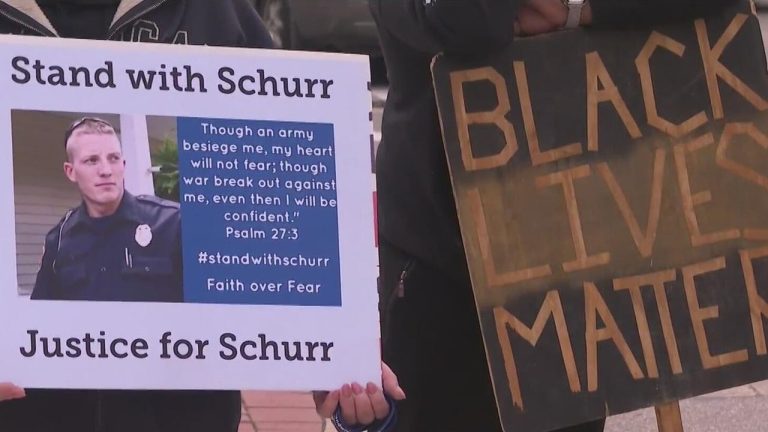Gun Display in Michigan Zoom Meeting Spurs Pandemic-Era Lawsuit, Settled for $100,000
A court fight over a controversial moment with a Zoom public session in Michigan is finally over, as Grand Traverse County has agreed to pay $100,000. The COVID-19 pandemic centered around a former county commissioner who displayed a rifle on camera during a Zoom session.
The fight, which occurred in 2021, was the result of an intense argument in the course of a virtual board of commissioners meeting – a requirement by then-pandemic lockdowns. Patricia MacIntosh, a local resident, was at the public comment portion of the meeting. She took her allotted time to speak out in support of a call for the board to condemn anti-government extremism. The petition was in only weeks behind the January 6 violent breaching of the U.S. Capitol, and feelings about a matter such as this were in high gear around the country.
What next transpired was a bit of a shock to most. Ron Clous, being one of the then commissioners, exited out of his webcam only to be back a brief time later carrying a gun. He showed the gun on camera but uttered not a single word about it. MacIntosh went on to say that the action not only was improper but also was intimidating and that she felt it was an attempt to silence her right to speak out.
MacIntosh, in reaction to the incident, sued in federal court, alleging that her constitutional right to free speech was abrogated. To her, the actions of Clous made her surroundings oppressive, especially in light of the political atmosphere at the time and the topic she was discussing.
The lawsuit is resolved, with the county paying MacIntosh $100,000 in damages. The local taxpayers will not directly pay for the money, according to the Traverse City Record-Eagle, which reported that the settlement will be paid for by the county’s insurance company. In addition to the settlement, Clous, who is no longer in public office, also provided a written apology.
In his apology, Clous acknowledged that while his aim might not have been to intimidate or shut up MacIntosh, he could understand how what he did might have been viewed as doing so. “While not my intention, I can see that grabbing my rifle would reasonably have made you uncomfortable or intimidated, and for that I apologize,” he said.
For MacIntosh, the settlement marked the end of a legal battle she says could have been avoided with a simple acknowledgment of wrongdoing from the start. According to her, she would not have filed the lawsuit if Clous had offered a genuine apology at the time, admitting that bringing the weapon on screen was a poor decision. “I would have never sued if he had just said, ‘I’m sorry. I never knew this was so dumb” she cried during an interview.
Besides settling the case, MacIntosh now faces having to determine how to use the settlement funds. After having her lawyer fees paid, she suggested there might be some thought given to the establishment of a scholarship fund. What a wonderful thing to see such kindness come out of such a frightening and unnecessary stand-off.
The larger context of this event concerns issues of the boundaries of professional decency, even on the internet. During the COVID-19 pandemic, government agencies nationwide held their meetings on the internet. This facilitated ongoing government and community interaction but created issues, including how to uphold decorum and how to uphold civility of debate in a new environment.
Within this virtual environment, tensions did not stop being unbridled. Rather, they added a new twist: action whose meaning was contingent on one’s interpretation of intent and effect. Clous, as a politician himself, might have had the intention to comment personally or in jest, but to MacIntosh and many, that it was a weapon – furthermore, in the emotionally charged context of a political split – was interpreted as implicit threat.
Civil liberties groups have noted that the kind of incidents outlined are problematic in relation to intimidation, censorship, and public trust. When the public sphere is converted into hostile fora, especially where the articulation of differing points of view is confronted with displays of violence or power, then the democratic process itself can become compromised. Rendering citizens comfortable to participate and be heard is paramount to any quality local government.
This case also has the function of highlighting the fact that representatives who are elected must be careful as to how their conduct appears to the public. With the most benevolent intentions, a perception of menacing conduct can be durable in its impact—not only on the parties directly involved but on the reputation of institutions of government.
Since the problem with respect to what happened has been solved, Grand Traverse County can look in the rearview mirror at what it must do so that similar things do not occur in the future. Training in virtual behavior, professional decorum, and public interaction can be requested so that trust will be restored and established that meetings remain a forum where there is open and respectful discussion.
Lastly, the $100,000 settlement is an expensive reminder that professionalism and accountability count – both in person and on the Internet. One politician’s actions on a Zoom call have bestowed upon the county political landscape a black eye and have taught us something about the intersection of responsible government, public service, and free speech.







